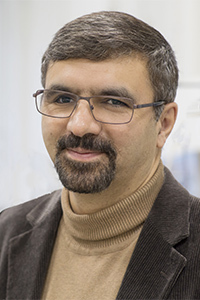Transforming wastewater treatment plants to sustainable biorefineries by developing VFA platform
Start date: 2018-11-05
End date: 2019-05-31
Wastewater treatment plants in the world are producing a huge amount of sludge that is normally anaerobically digested (AD) to produce biogas and to reduce sludge volume. Food wastes are also a challenge in the world, where landfilling, composting and AD are the current treatments. While biogas production has economical challenges, such plants have to buy and add external carbon source such as ethanol or methanol into their denitrification process for removing nitrogen and phosphorous from wastewater. Volatile fatty acids (VFAs) are intermediate products during the AD process.
This project deals with proof of concept with experimental works in lab scale and technoeconomical evaluation of using membrane bioreactors to produce and extract VFAs from sludge and food wastes to be used as carbon source for denitrification, and therefore promote circular economy for wastewater treatment plants. VFA is produced from the sludge and/or in a mixture with food wastes by anaerobic digestion, where methane formation is inhibited and the VFAs are extracted via submerged membranes.
This project has the potential to be applied at all Swedish (more than 400 units) and international wastewater treatment plant providing them with a well-defined concept of a biotechnology-based circular economy. In addition, successful production and extraction of VFAs make the possibility to further process them to other products such as bioplastics or butanol and use the sludge as a substrate in a biorefinery.
Project Leader
Mohammad Taherzadeh
Professor
033-435 5908


